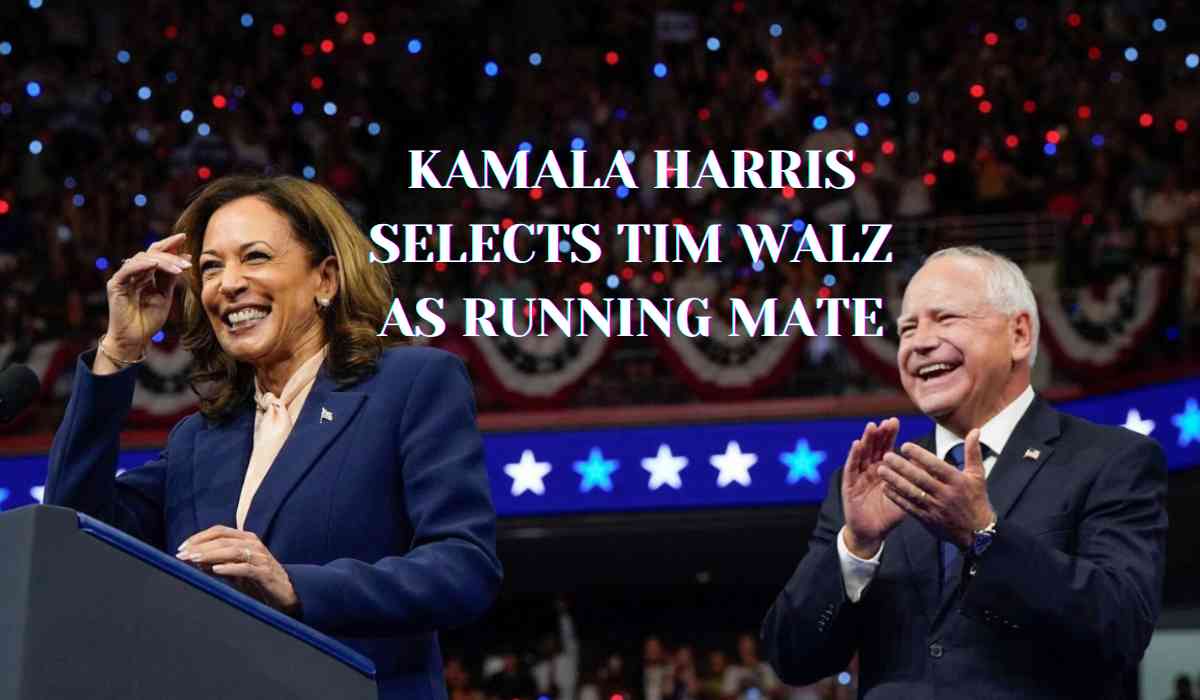On August 6, 2024, Vice President Kamala Harris made headlines by naming Minnesota Governor Tim Walz as her running mate for the upcoming presidential election. This decision marks a significant moment in the campaign, reflecting both strategic calculations and personal preferences. The selection process was notably swift and intense, reflecting the urgency and gravity of the political landscape.
The Selection Process: A Rapid and Rigorous Vetting
- Political Context and Timing
The decision to select a running mate came at a crucial time. On July 21, 2024, President Joe Biden made the unexpected announcement of his decision to step aside from the race, endorsing Kamala Harris as his successor. This move shifted the focus to Harris’s choice of vice-presidential candidate, setting the stage for a rapid and intensive vetting process.
- The Vetting Team
A team of ten Harris aides, including campaign chair Jen O’Malley Dillon, Chief of Staff Sheila Nix, and senior adviser Cedric Richmond, led the vetting process. They were supported by high-profile figures such as former US Attorney General Eric Holder, former White House counsel Dana Remus, and Tony West, Harris’s brother-in-law and a former Department of Justice official.
- The Shortlisting and Final Decision
Initially, a dozen potential candidates were considered. This list was narrowed to nine, who were then asked to submit detailed materials for further scrutiny. The finalists included:
-
Tim Walz - Governor of Minnesota
-
Josh Shapiro - Governor of Pennsylvania
-
Mark Kelly - Senator from Arizona
-
Andy Beshear - Governor of Kentucky
-
J.B. Pritzker - Governor of Illinois
-
Pete Buttigieg - Secretary of Transportation
Notably, Michigan Governor Gretchen Whitmer and North Carolina Governor Roy Cooper withdrew from consideration, choosing to focus on their gubernatorial roles. The final six candidates underwent a series of interviews, both virtual and in-person, with the final round of meetings taking place with Harris at the Naval Observatory.
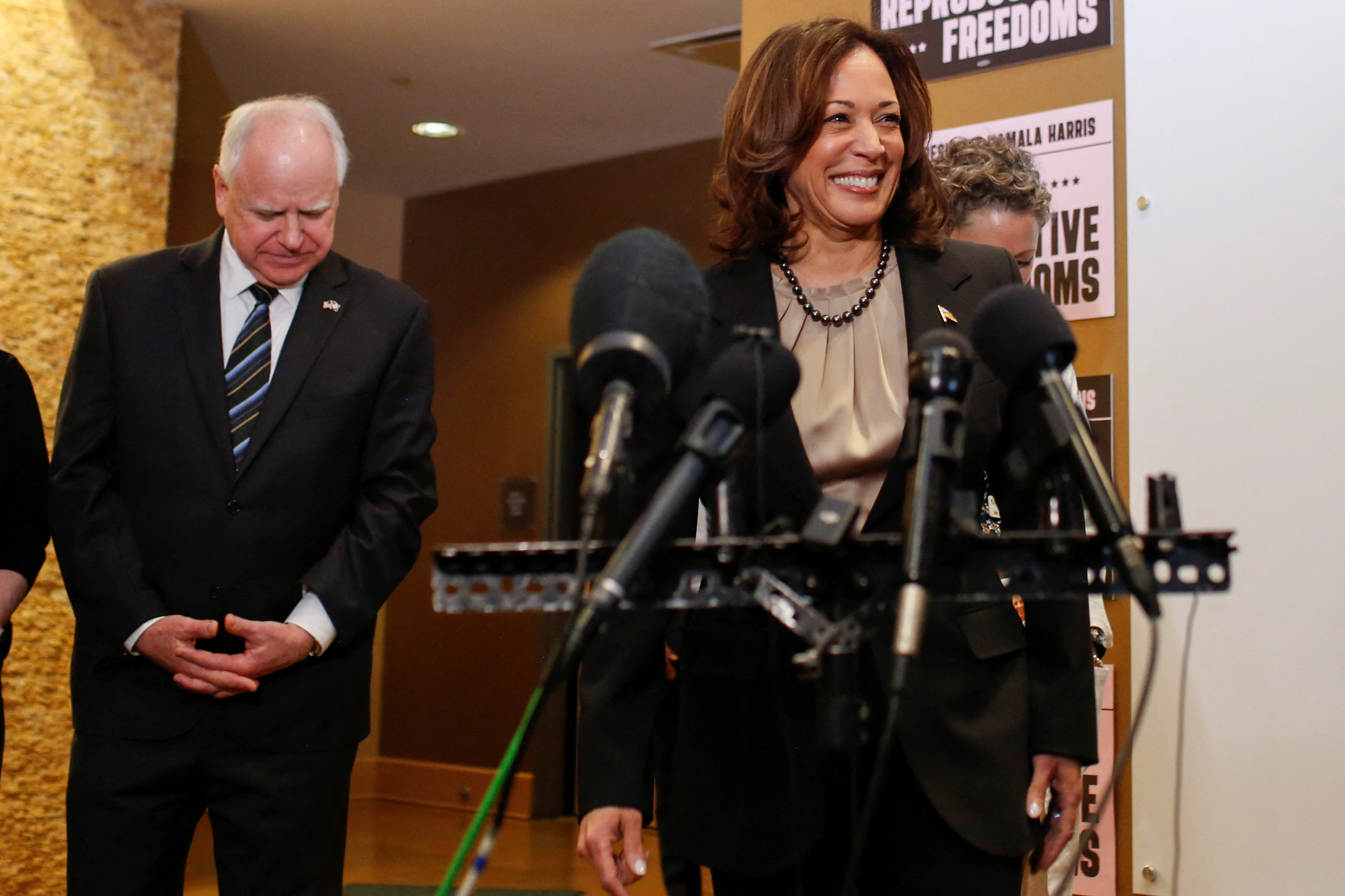
Who is Tim Walz?
Minnesota Governor Tim Walz has been chosen by Democratic presidential nominee Kamala Harris as her running mate in the upcoming election. This selection aims to broaden Harris’s appeal as she faces off against Donald Trump. Below is a detailed look at Tim Walz’s background, experience, and recent political developments.
- Background and Early Life
-
Birth and Education: Tim Walz was born in Nebraska and is currently 60 years old. His early life laid the groundwork for his diverse career.
-
Military Service: At the age of 17, Walz enlisted in the US Army National Guard, where he served for an impressive 24 years, eventually retiring as a command sergeant major. His military background reflects a commitment to public service and leadership.
- Professional Journey
-
Education Career: Before entering politics, Walz worked as a high school teacher, specializing in geography. He also coached a football team, which highlights his dedication to youth and education.
-
Advocacy and Inclusivity: In 1999, Walz served as the faculty adviser for his school’s first gay-straight alliance chapter, showcasing his commitment to inclusivity and support for LGBTQ+ rights.
-
Political Career: Walz spent 15 years in the House of Representatives, where he was elected from one of Minnesota’s more conservative districts. His ability to earn the National Rifle Association’s endorsement indicates his willingness to engage with a wide range of constituents and issues.
- Governorship and Political Influence
-
Governor of Minnesota: Since 2019, Walz has held the position of Governor of Minnesota. His leadership has been particularly significant during challenging times, including the social unrest following the murder of George Floyd in Minneapolis.
-
Rise in Profile: Recently, Walz’s profile increased after a viral cable news interview where he referred to Trump and his running mate JD Vance as “weird.” This phrase resonated within the Democratic Party and became a key line of attack against the Republican ticket.
- Support for Kamala Harris
-
Political Strategies: Throughout the 2024 election cycle, Walz has actively supported Harris and engaged in promoting the Democratic agenda. His campaign tactics have included the unique “weird” characterization of Trump, which has gained traction among national Democrats.
-
Backing from Leaders: Walz's candidacy received significant support from influential Democratic leaders, including former Speaker of the House Nancy Pelosi. His dual experience in both executive and legislative roles sets him apart from other candidates.
- Potential Challenges
-
Political Baggage: Unlike some of his peers, Walz does not carry substantial political baggage that could lead to infighting within the party. This quality makes him a strategic choice for Harris, as it allows them to present a united front.
-
Republican Opposition: As the election approaches, Republicans are likely to emphasize the tumultuous period in Minnesota during the George Floyd riots, seeking to undermine Walz’s credibility and leadership.
Tim Walz's unique blend of military service, educational background, and political experience positions him as a significant figure in the 2024 election, potentially enhancing Kamala Harris's campaign against Donald Trump.
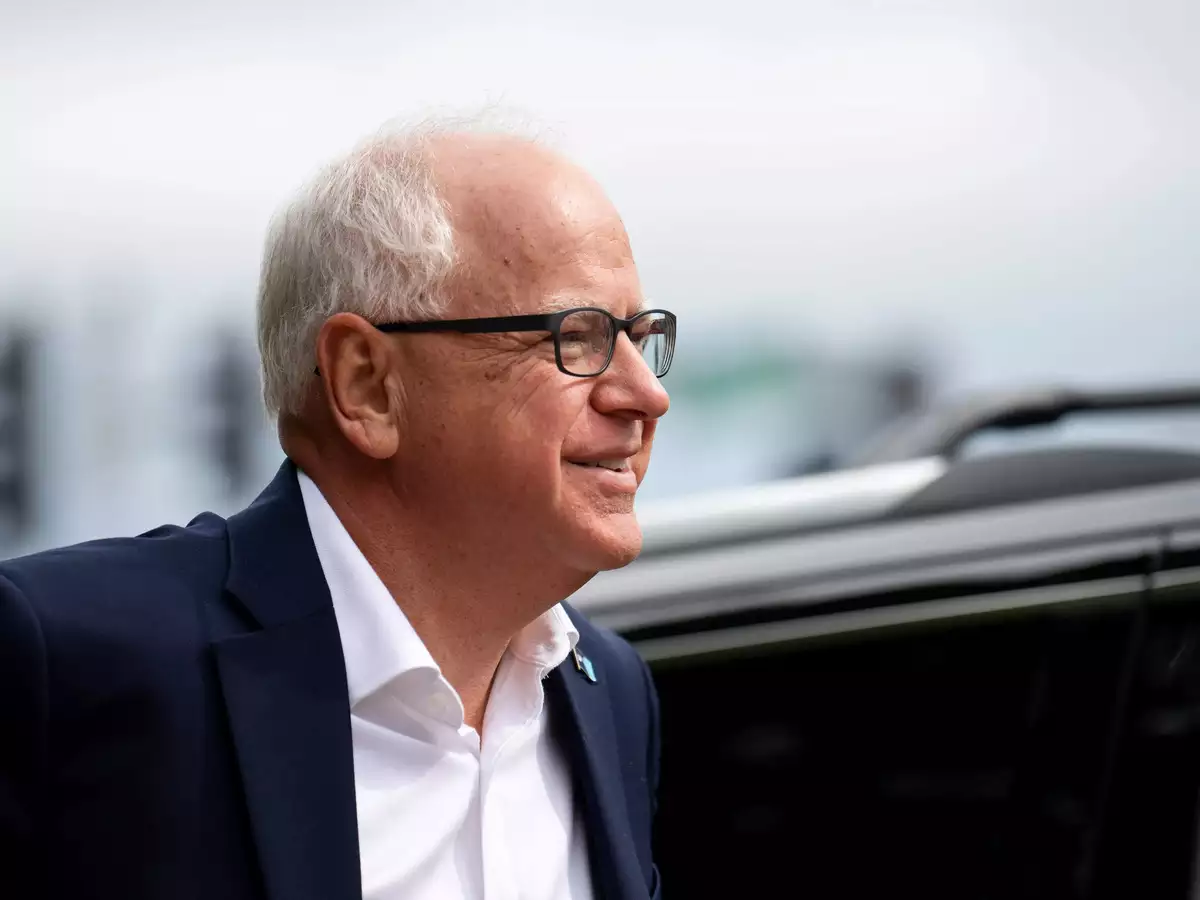
Why Tim Walz?
-
Political Accomplishments
Tim Walz’s selection can be attributed to various factors, particularly his impressive track record as governor. His notable achievements include:
-
Reproductive Health Access: Advocated for policies that enhance access to reproductive health services.
-
Paid Leave Initiatives: Implemented measures to provide paid leave to working families.
-
Child Tax Credits: Promoted financial support mechanisms for families.
-
Gun Safety Measures: Championed legislation aimed at improving gun safety.
These areas of focus resonate well with Harris’s political platform, establishing a robust foundation for their campaign.
-
Personal Appeal and Communication Style
Walz’s background adds to his appeal as a candidate. His experience as a high school teacher and a veteran enhances his relatability to voters. He successfully flipped a Republican-leaning district in 2006, demonstrating his ability to win in challenging political environments.
Harris’s team was particularly impressed by Walz's down-to-earth communication style. Known for his plain-spoken demeanor, he engages effectively with voters without resorting to aggressive tactics. His light-hearted critiques, such as describing Donald Trump and his allies as “weird” during an appearance on MSNBC, illustrate his ability to connect with a broad audience.
-
Personal Narrative
Walz's personal experiences, including his family's struggles with infertility and their successful use of IVF, align with the Democratic emphasis on reproductive rights. His relatable life story, combined with his political accomplishments, positioned him as a strong contender for the vice-presidential nomination.
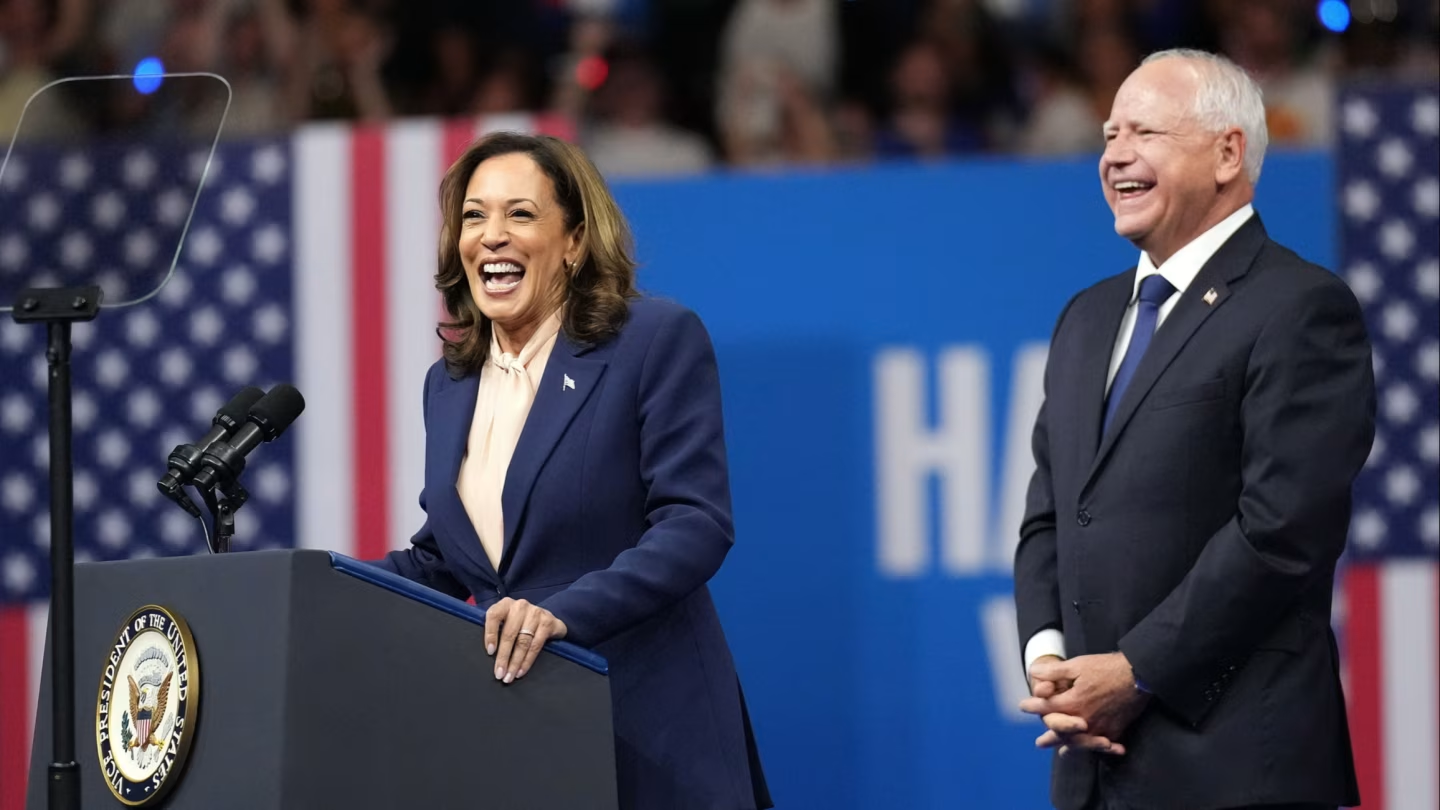
Why Not Josh Shapiro or Mark Kelly?
- Josh Shapiro
Josh Shapiro, Governor of Pennsylvania, was a strong contender with considerable strengths:
-
Political Acumen: Shapiro’s skills in politics and fundraising were assets.
-
Progressive Criticism: He faced backlash from progressive groups due to comments comparing pro-Palestinian protesters to the Ku Klux Klan and issues related to handling a sexual harassment complaint.
Despite his notable qualifications, Shapiro’s candidacy was impacted by criticism and internal concerns. His hesitation about leaving his role as governor also complicated his candidacy.
- Mark Kelly
Arizona Senator Mark Kelly, with his impressive background as an astronaut and Navy captain, was also a finalist. However, his candidacy faced challenges:
-
Pro-Union Legislation: His stance on pro-union legislation drew criticism from labor groups.
-
Voter Engagement: There were concerns about his ability to inspire and excite voters on the campaign trail.
These factors contributed to Kelly’s position behind Walz in the final decision-making process.
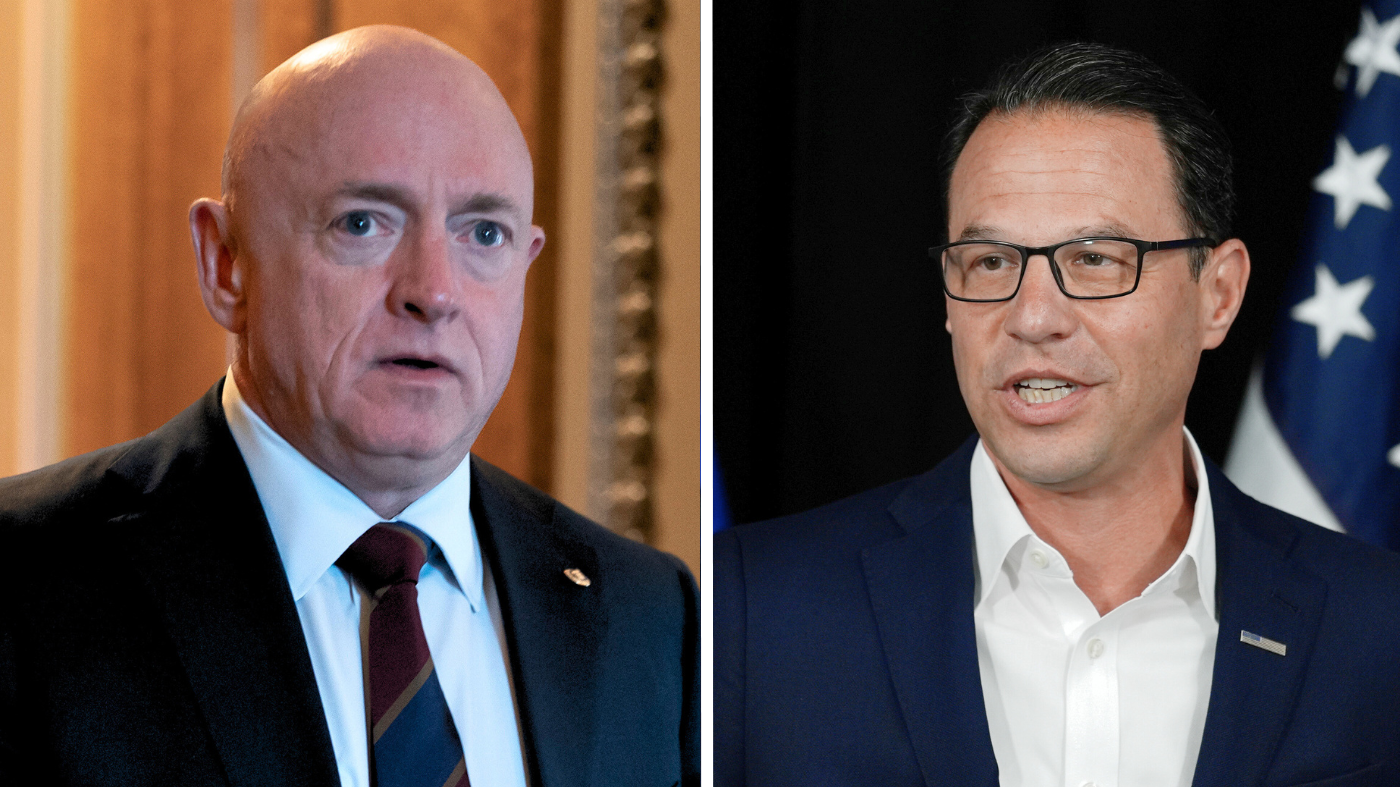
The Final Decision-Making Process
The final decision was reached after extensive reviews of each candidate’s qualifications and impact on the campaign. The process included:
-
In-Depth Interviews: Harris and her aides conducted detailed interviews with finalists, exploring aspects of their records and potential contributions.
-
External Endorsements: Endorsements, such as that from United Auto Workers President Shawn Fain, who favored Kentucky Governor Andy Beshear but praised Walz’s support for labor, played a role in shaping the decision.
Ultimately, Harris's personal chemistry with Walz and his strong governing record were decisive. By Monday night, Harris had made her choice, and Walz’s selection received broad approval within the Democratic Party.
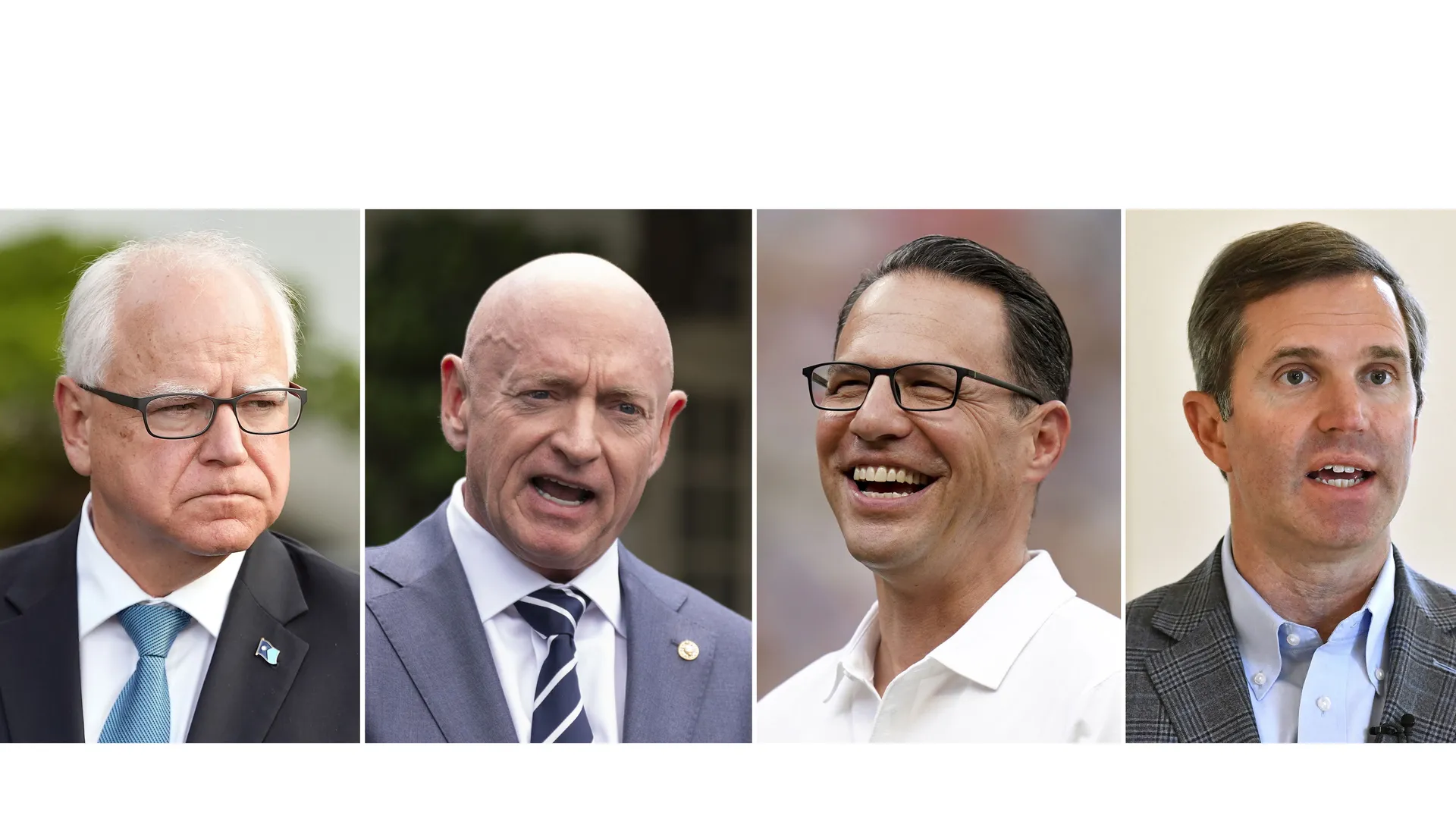
Walz’s Connections to India and China
- Proclamation of India Day
Governor Walz has made significant cultural contributions, notably proclaiming August 15 as "India Day" in Minnesota. This declaration coincided with India’s Independence Day and celebrated the contributions of Indian-Americans to the state. During this proclamation, Walz recognized India as the world's largest democracy, acknowledging its diversity and rich cultural heritage. Minnesota is home to approximately 55,000 individuals of Indian origin, primarily engaged in education, business, healthcare, and technology.
- Extensive Experience in China
Walz’s connection to China is significant:
-
Teaching and Travel: After graduating from college, Walz taught English in China in 1989 and later organized student trips to China with his wife through their company, Educational Travel Adventures, Inc.
-
Strategic Implications: Walz’s extensive experience in China may influence perceptions amid the US-China trade conflict, though the full impact remains to be seen.
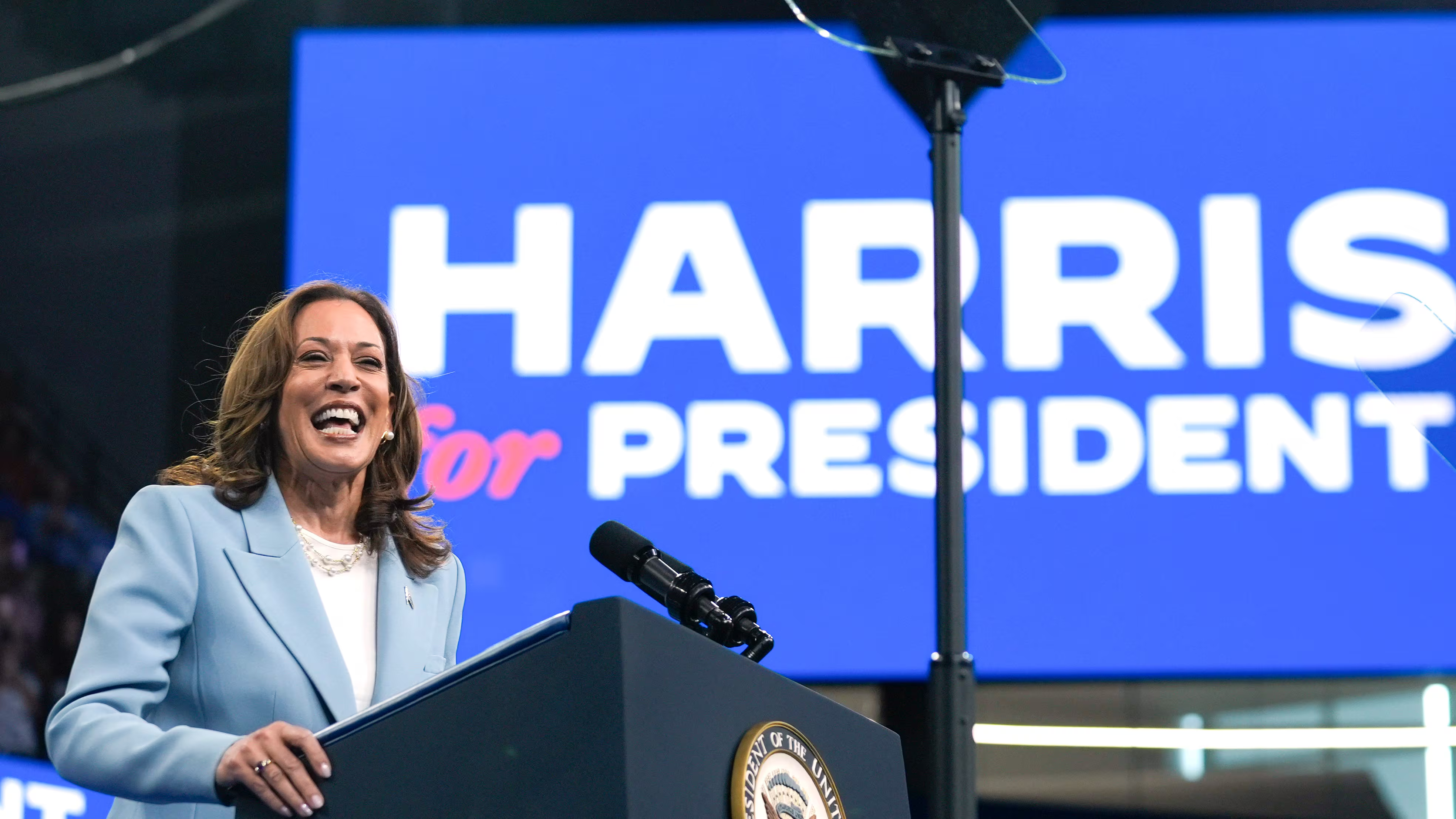
Key Takeaways from Harris and Walz's First Rally Together
On August 6, Kamala Harris and Tim Walz kicked off their campaign in Philadelphia, marking their first rally together. Here are seven key takeaways from this event at Temple University, which set the tone for their joint efforts.
1. Introduction to a National Audience
Walz shared his personal journey, emphasizing his humble beginnings in Nebraska, his extensive military service, and his career as a high school teacher and coach. His narrative aimed to connect with everyday Americans, reinforcing his commitment to public service and the collective good.
2. Direct Attacks on Republican Opponents
Walz did not shy away from confronting Donald Trump and JD Vance, criticizing Trump’s record on handling the COVID-19 pandemic and rising crime rates. This assertive stance demonstrated Walz's readiness to engage in the political fray, fulfilling the traditional role of a vice presidential candidate who takes on the opposition.
3. Reproductive Rights at the Forefront
A passionate advocate for women’s reproductive rights, Walz addressed the critical issue following the Supreme Court's 2022 decision to overturn Roe v. Wade. His emphatic statement, “mind your own damn business,” regarding personal reproductive choices received loud applause, underlining a stark policy difference between the Democratic and Republican platforms.
4. Harris's Confidence in Walz
Kamala Harris expressed her strong confidence in Walz’s diverse background and abilities. She highlighted his roles as a family man, educator, veteran, and public servant, projecting faith that he could successfully add “Vice President of the United States” to his impressive list of titles. This endorsement is crucial for galvanizing voter support.
5. A Boost in Fundraising
The announcement of Walz as Harris's running mate led to a significant surge in campaign fundraising, with over $20 million raised shortly after the announcement. This financial influx indicates heightened enthusiasm among Democratic donors and supporters, positioning the campaign for a competitive edge in the upcoming election.
6. Focus on Battleground States
The Philadelphia rally was the beginning of a strategic campaign tour through key battleground states, including Wisconsin, Arizona, and Nevada. With Pennsylvania being a critical swing state, their campaign aims to solidify support in these regions, which could prove decisive in the election outcome.
7. Republican Pushback
In response to the Harris-Walz ticket, Trump and Vance quickly labeled them as too liberal. Vance criticized Walz’s management of the George Floyd protests, suggesting a lack of assertiveness. However, Walz’s progressive policies, such as free school meals and climate change initiatives, resonate with a broad base, particularly among rural and white voters, which may help counter this narrative.
As the race intensifies, the collaboration between Harris and Walz appears to be a calculated effort to leverage their combined strengths and appeal to diverse voter demographics. Their dynamic campaign strategy will play a crucial role in shaping the political landscape leading up to the election on November 5th.
With inputs from agencies
Image Source: Multiple agencies
© Copyright 2024. All Rights Reserved Powered by Vygr Media.

